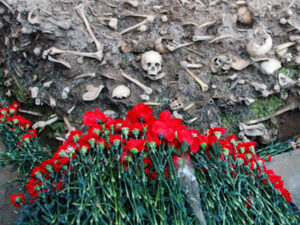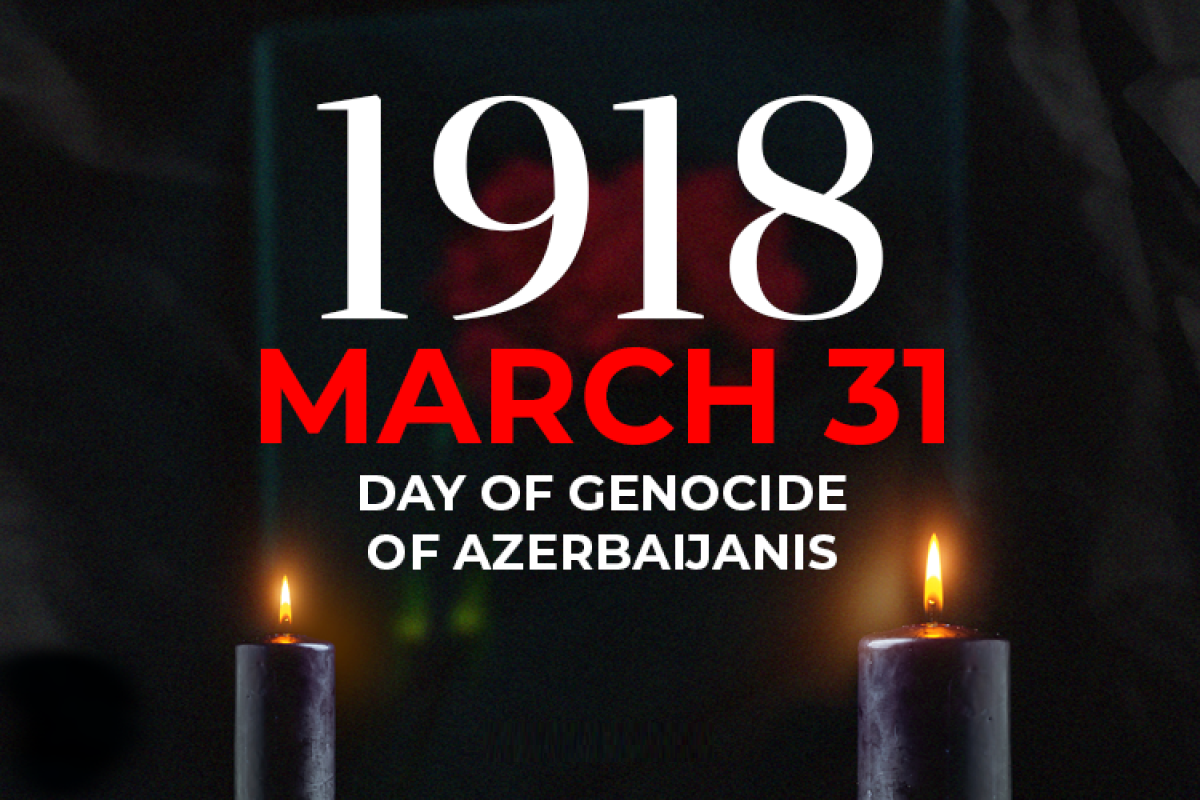It is the anniversary of the Armenian Dashnaks’ genocide against Azerbaijanis together with the Bolsheviks.
Thus, 106 years have passed since the genocide was committed against Azerbaijanis.
The Ministry of Foreign Affairs of the Azerbaijan Republic issued a statement on March 31 – Day of Genocide of Azerbaijanis.
The statement reads:
“March 31 – Day of the Genocide of Azerbaijanis is the day when the memory of our innocent compatriots, who were victims of racial discrimination and intolerance of radical Armenian groups, were subjected to systematic ethnic cleansing and genocide, is commemorated.
Throughout history, radical Armenians, who used all available methods to carry out the ethnic cleansing of Azerbaijanis from their native lands, committed merciless massacres against our compatriots in March-April 1918. Tens of thousands of Azerbaijanis living in Baku, Shamakhi, Guba, Garabagh, Zangazur, Nakhchivan, Lankaran, as well as other regions were killed with particular cruelty, and many settlements and religious and cultural monuments were destroyed. As a result of mass killings, more than 16,000 people were brutally murdered in Guba alone, and 167 villages were destroyed.
The genocide committed against the civilian population, the mass graves of the genocide victims discovered in 2007 in the territory of Guba region. As confessed by Stepan Shaumyan, the Extraordinary Commissioner of the Caucasus, who was an Armenian by nationality, about the participation of 6,000 armed soldiers of the Baku Soviet and 4,000 armed soldiers of the “Dashnaksutyun” party in the mentioned genocide destroyed settlements and cultural monuments.
After the establishment of the Azerbaijan Democratic Republic, an Extraordinary Investigative Commission was established to investigate the events of March, as well as bring criminals to justice. Criminal cases were opened against 194 people accused of crimes committed on the basis of the evidence determined by the Commission, 24 people were arrested in Baku and about 100 people in Shamakhi. However, the fall of the APC interrupted the process of a full investigation of the events, as well as a political-legal assessment of the March massacres.
Only after the restoration of our independence, with the Decree of Great Leader Heydar Aliyev dated March 26, 1998, “On the Genocide of Azerbaijanis”, an adequate political evaluation was given to the events, and March 31 was declared “Day of the Genocide of Azerbaijanis”.
The mass deportation of Azerbaijanis living in Armenia, the crimes of ethnic cleansing and genocide committed during the military aggression and occupation of this country against Azerbaijan, war crimes against the civilian population living outside the areas where military operations took place during the 44-day Patriotic War showed that the policy of systematic ethnic hatred and intolerance against Azerbaijanis is still being continued. .
Learning lessons from history, preventing such bloody events from happening again, and ending the impunity of criminals are very important in terms of assessing the opportunities for peace in the region in the current post-conflict period. In this direction, preventing revanchism in Armenia depends significantly on the leadership of this country, as well as on the international community.
On March 31 – Day of the Genocide of Azerbaijanis, we commemorate the dear memory of the innocent Azerbaijanis who were subjected to ethnic hatred and genocide with deep sadness and respect.”


